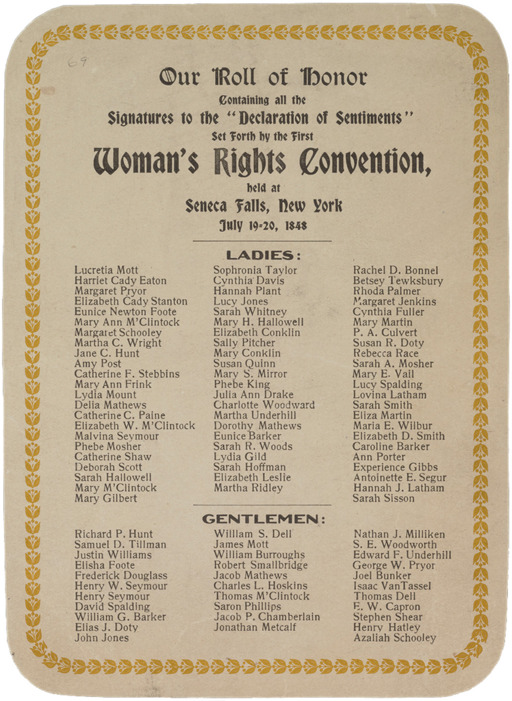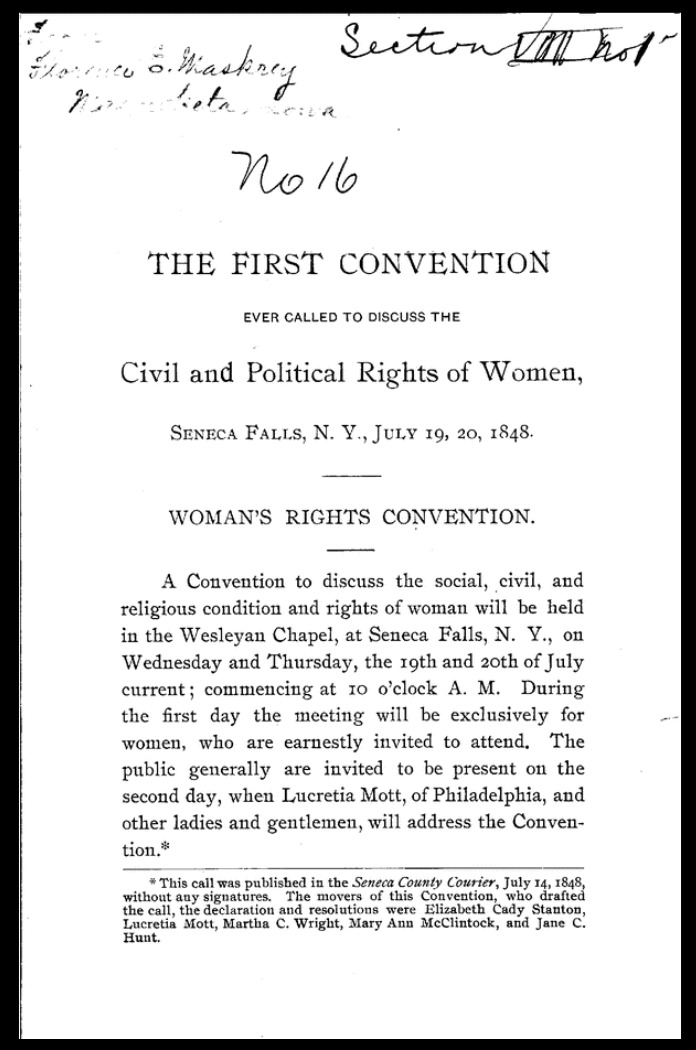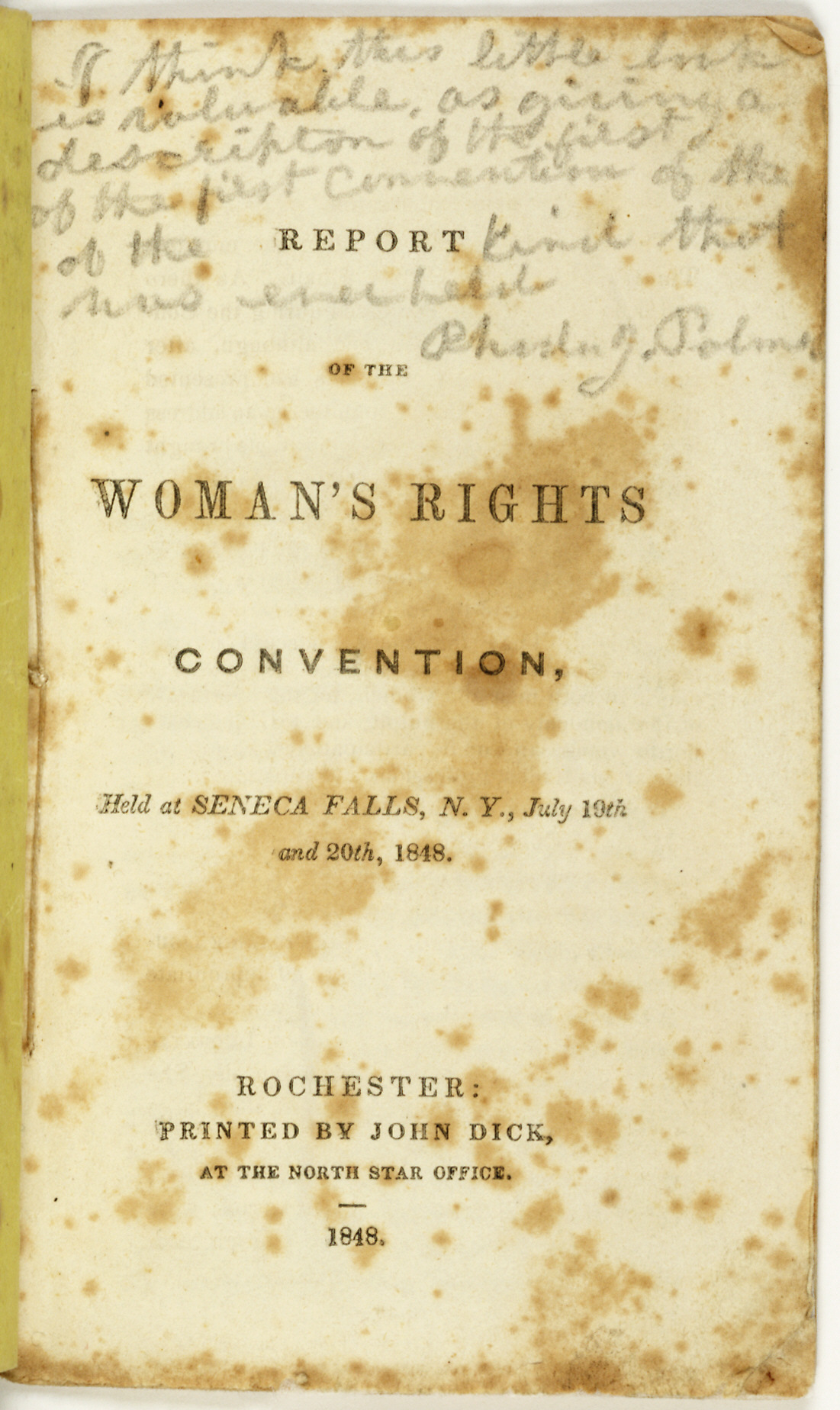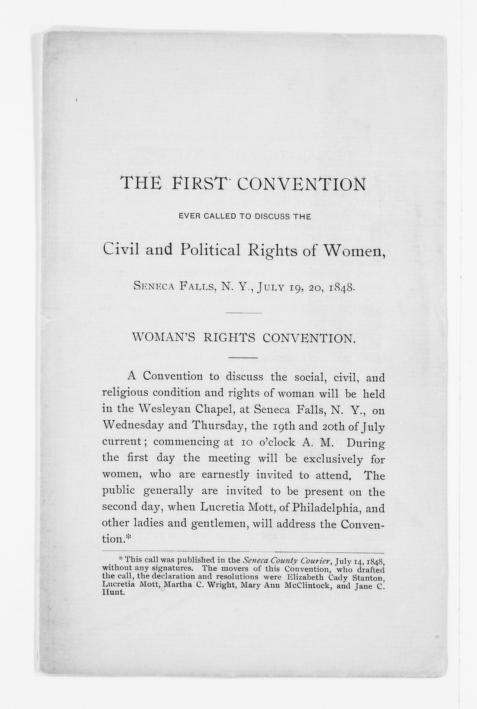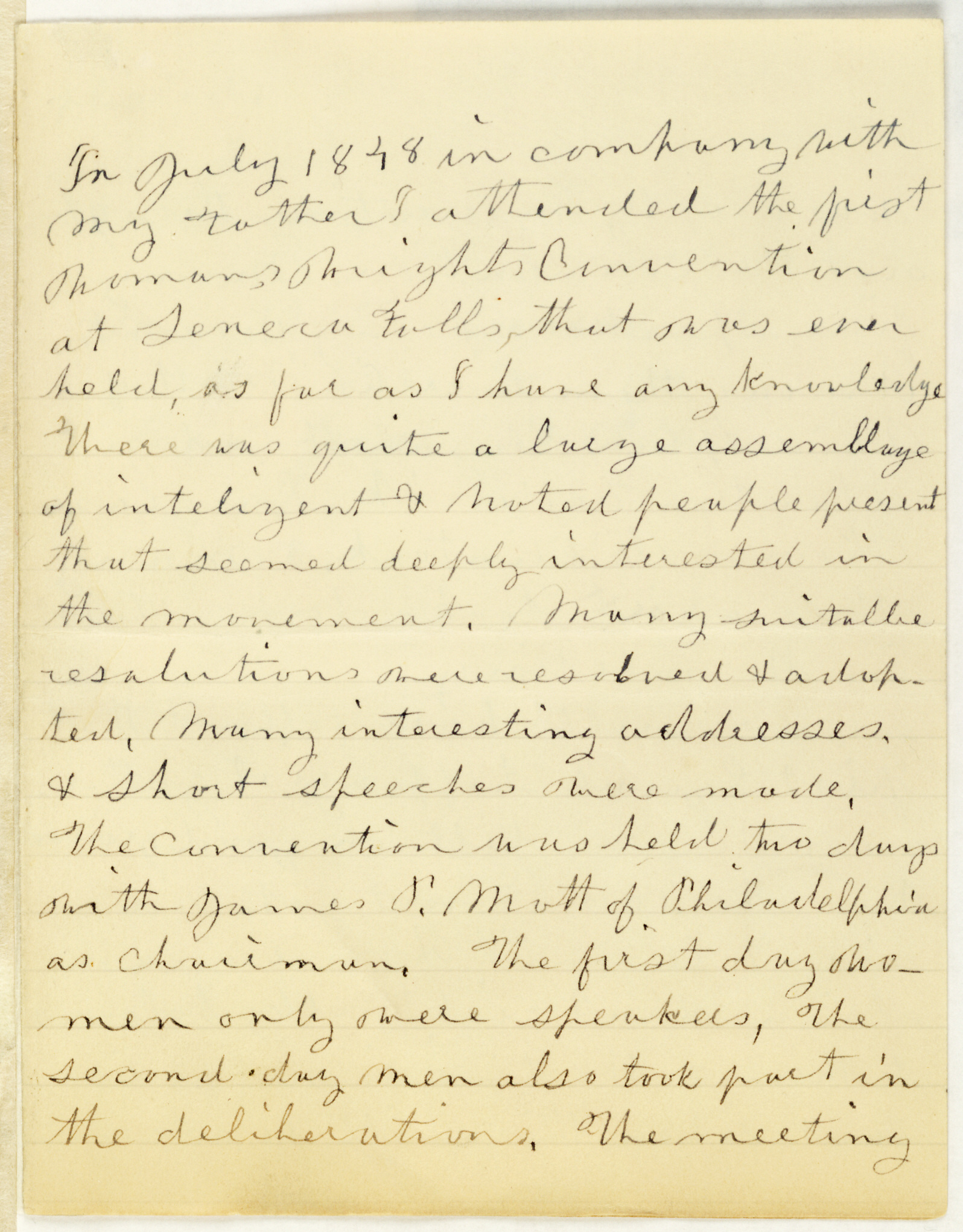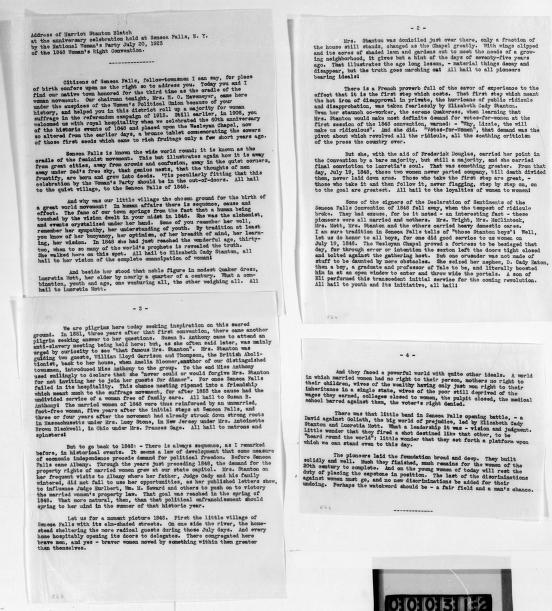Seneca Falls Convention, 1848
"Celebrating Women's Herstory: The Story of Seneca Falls" commemorates the 150th anniversary of the Seneca Falls Convention in 1848, the birthplace of the women's rights movement. Led by Elizabeth Cady Stanton and Lucretia Mott, the convention emerged from a sense of exclusion felt by women at the 1840 World Anti-Slavery Convention in London, where women were banned from active participation. This inspired Mott and Stanton to organize a gathering focused on women’s rights.
On July 13, 1848, Stanton expressed her frustrations at a tea party which led to plans for the convention. Held on July 19-20, 1848, in Seneca Falls, New York, the convention featured the "Declaration of Sentiments," which drew from the Declaration of Independence but rephrased grievances as those caused by "all men" instead of King George. Stanton’s insistence on including women’s suffrage was controversial but ultimately included after debate.
The convention attracted around 300 attendees, and 100 individuals (68 women and 32 men) signed the Declaration. This meeting was the first in a series of women's rights gatherings, laying a foundation for future movements advocating for equality in voting, property rights, and broader societal participation.
More on the Seneca Falls Convention
The Seneca Falls Convention was not the first discussion of women’s rights, but it is recognized as the formal beginning of the organized women’s rights movement in the U.S. Its impact extended far beyond the event itself, inspiring further conventions and activism. While some participants and the press ridiculed its demands, the convention sparked a national conversation about gender equality and laid the groundwork for future milestones, such as the passage of the Nineteenth Amendment in 1920. Despite its limitations, its focus on white, middle-class women, the convention remains a pivotal moment in the struggle for gender equality.
